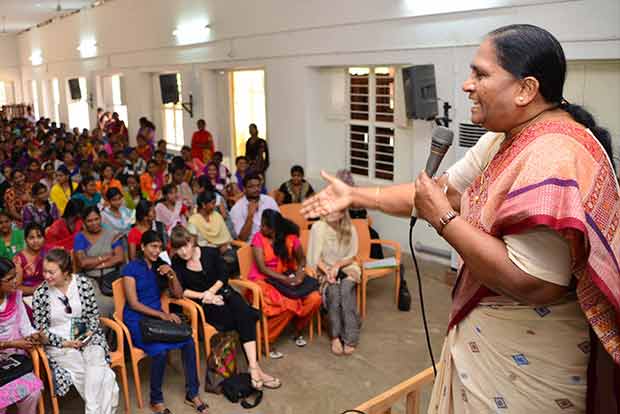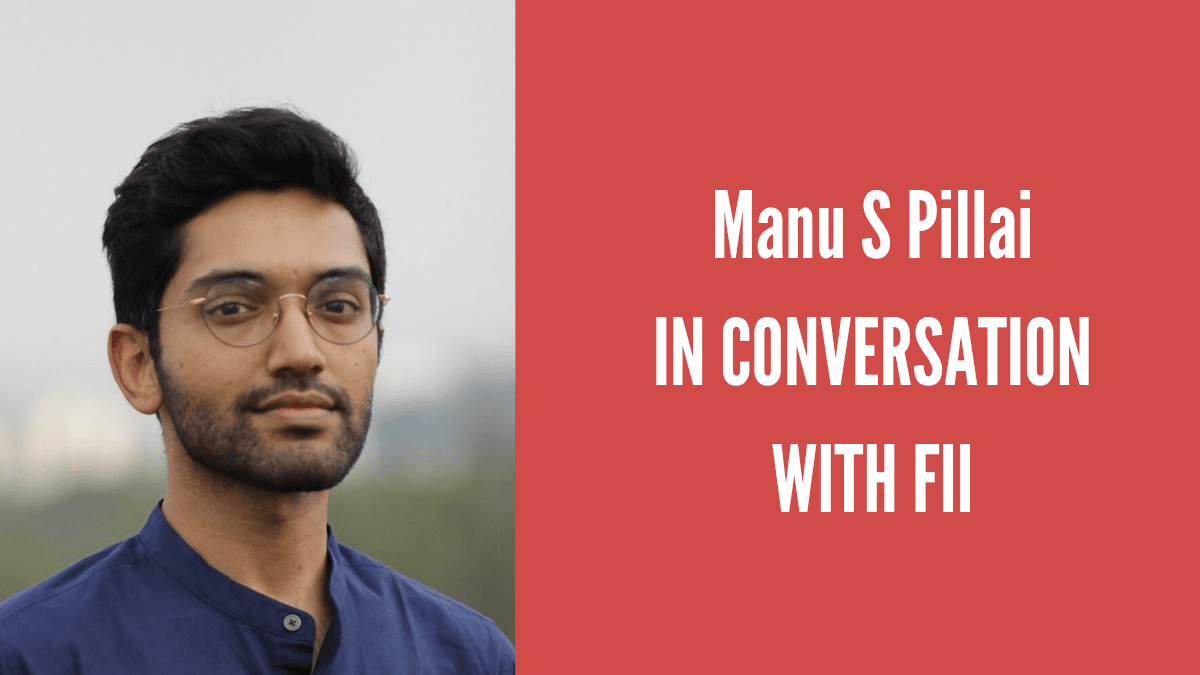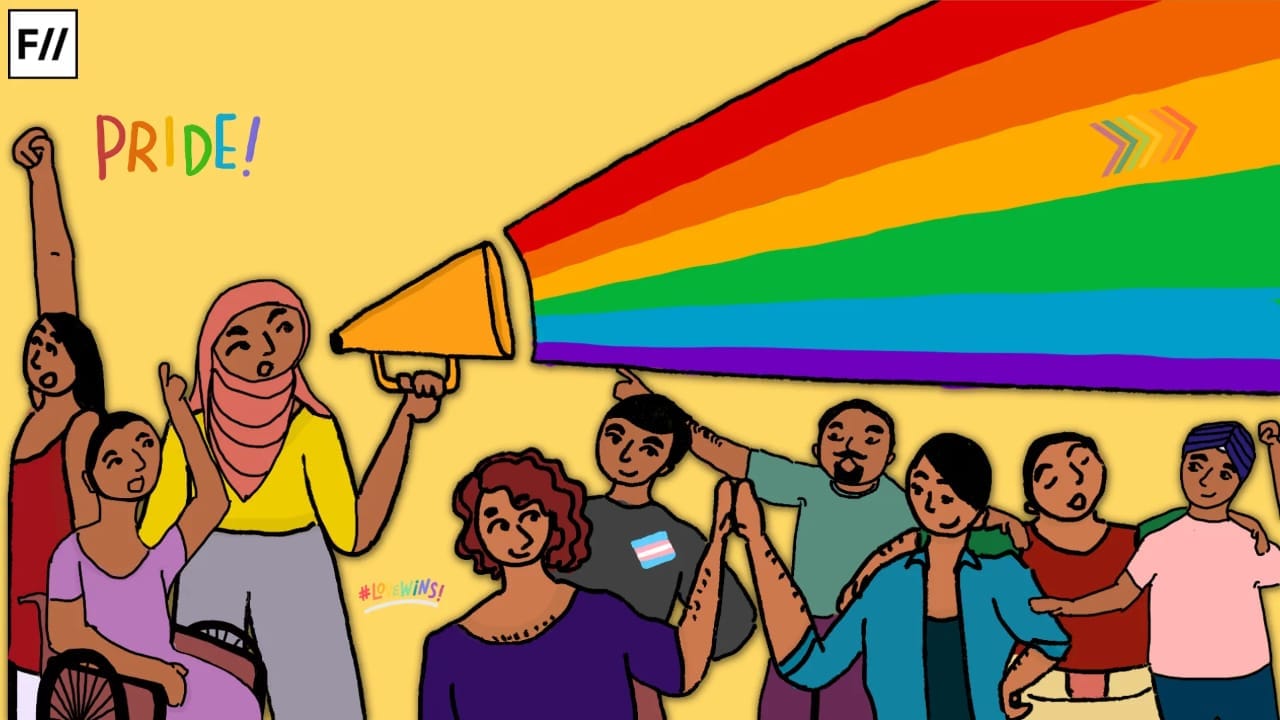Dr. Fatima Burnad, an extraordinary woman who has been fighting for the rights of minorities since she was 11 years old. Her journey till now has not been an easy one, from making her own way in this man’s world, to being kidnapped and threatened for fighting for rights of minorities, she has fought against all odds. Her dedication, determination and will to create an equal world for all is inspiring.
In 1979, she established Society for Rural Education and Development (SRED) that works for the rights of people and supports people’s movements. Along with SRED, she is responsible for establishing multiple forums and platforms that promote women’s rights, worker’s rights, and various other people’s movements. She has always voiced a strong resistance against the trade and agricultural policies of the government and has been critical of their impact on the lives of women farmers. Besides being one of the key activist of women and Dalit’s rights in India, Fatima Burnad has a very strong international presence. She brought the issues of Dalit women on international forums.
Through this conversation, I intend to share the interesting and inspiring journey of Dr. Burnad Fatima.
She has always voiced a strong resistance against the trade and agricultural policies of the government and has been critical of their impact on the lives of women farmers. Besides being one of the key activist of women and Dalit’s rights in India, she has a very strong international presence.
I believe that your passion for advocating human rights and women’s rights began at a very young age. At 11, you filed a petition to save a girl who was being abused and tortured by her employers. Can you tell us more about how your journey began and what has been your motivation for working in this field for so long?
Fatima Burnad: Yes, it’s a wonderful feeling to think about how I was moved to rescue an 11-year domestic worker who was of my age at that time. I continue to live in a Dalit village. I studied at an elementary school in Perumuchi village, Arakonam which is my native village, and I am still staying there at my parent’s house.
Four people have played an important role in my childhood. They have been my constant motivation and their values have shaped my entire life. My teacher in class 1st Mr. Agan, who later became my brother-in-law after he married my sister. My teacher in third class, my own father, Mr. M. P. Natesan. I still carry his name as a suffix. I am proud of him and I follow his teachings. I learned about patriarchal norms in my childhood itself from his behavior towards us sometimes. Then came my 5th class teacher, Mrs. Premavathy, a very religious person.

Later, I used to walk 5 to 6 km every day to go to a higher secondary school in Arakonam. Here, I had the opportunity of volunteering for various activities and I was appreciated and motivated by my teachers. After standard 8th, I moved to Chennai to Northwick girls’ higher secondary school where the principal was my inspiration in every way. I admired the way she dressed in cotton sarees, the way she walked and talked, and her style of communicative English motivated and encouraged me to speak in English. All of the people I have mentioned, played an important role in my life and have been my motivation from childhood to school days.
In the hostel, I was called “Lady with the Lamp” for taking care of the students who were kept in the sick room while no one dared to go near that room. It was very dark and at the far end of the dormitory. At college too, I had very good friends, teachers, from all departments I was helping and supporting.
Despite the prominent presence of caste in India, there is a common belief that caste doesn’t exist in today’s world as it did earlier. How would you respond to that?
Fatima Burnad: When I addressed students at – Brooklyn – US, the same question was posed: Where is caste? The organizer asked them, who is cleaning your toilets back home in India? Caste identity is hidden but it is visible in the way it’s practiced. It is practiced everywhere: segregated living, divided works, eating, drinking separately. Caste is ingrained, it is a mindset and unless one uproots the whole tree and not the branches of caste it will not die.
When I addressed students at – Brooklyn – US, the same question was posed: Where is caste? The organizer asked them, who is cleaning your toilets back home in India? Caste identity is hidden but it is visible in the way it’s practiced. It is practiced everywhere: segregated living, divided works, eating, drinking separately.
You run an organization called Society for Rural Education and Development (SRED) and also have established multiple forums for advocating rights of the marginalized community. Could you shed some light on the work of the organization and forums?
Fatima Burnad: After college, in 1972, I started working on my own in a village near Pondicherry called Agasampet. I stayed in the village, leaving the comfortable stay at the convent, refusing to accept the terms and conditions of a Catholic sister at Ravathakuppam Leprosy Hospital. I then joined a group called Action for Political and Cultural Change that worked in and around Chitamoor in the Chengalpet district. The group later changed its name to Rural Community Development Association (RCDA) that promoted Rural Harijan Agricultural Development Association (RHADA).
As I was the only woman working with five men I constantly faced discrimination. I was asked only to work on tailoring training that I refused. I fought men to get equal positions, an equal number of workers, an equal budget, and equal number of villages like them even equal share in the budget allocation. I became the first woman to go by cycle and later drove Bobby scooter, a two-wheeler vehicle. I had to fight to get a two-wheeler too.
By having two-wheeler, I enjoyed traveling to many villages. I would travel post-midnight to far-away villages to deliver news of death that generally shocked the villagers. I even helped carry a child with burnt injuries with his mother at the middle of the night on my two-wheeler. However, the hard part of it was waking up the doctors and the pharmacists at that odd hour. After all these, a friend of mine Ingrid Wiechert, followed by Ostermann helped me to get away from the men’s team to start my own and stand by myself, which prompted me to promote Society for Rural Education and Development (SRED).
SRED is a registered organization that started its work in 3 districts viz. Vellore, Kancheepuram, and Thiruvallur from 1979 and gradually spread its activities to other districts. The focus of SRED is to Educate, Agitate and Organize. The journey had numerous public meetings, demonstrations, protests to regain the rights of discriminated, marginalized and oppressed minorities. In the trajectory of its interventions, SRED as an NGO promoted people’s movements among women and workers at the local and 4 state-level platforms.
At the local level the movements promoted by SRED are:
- Rural Women Liberation Movement (RWLM) comprising of Mathamma, Sex workers, Women traders.
- Rural Workers Movement (RWM) comprising of Irulas, Dalits, Agricultural workers, Brick kiln workers, Bullock cart workers, Quarry workers.
At the State level:
- Tamil Nadu Women’s Forum – TNWF
- Tamil Nadu Dalit Women’s Movement – TNDWM
- Women Coalition for Change – WCC
- State Alliance of Peoples Movement – SAPM
AS I WAS THE ONLY WOMAN WORKING WITH FIVE MEN I CONSTANTLY FACED DISCRIMINATION. I WAS ASKED ONLY TO WORK ON TAILORING TRAINING THAT I REFUSED. I FOUGHT MEN TO GET EQUAL POSITIONS, AN EQUAL NUMBER OF WORKERS, AN EQUAL BUDGET, AND EQUAL NUMBER OF VILLAGES LIKE THEM EVEN EQUAL SHARE IN THE BUDGET ALLOCATION.
Your work focuses a lot on the rights of Dalit women. Can you explain the intersection of caste and gender and how it impacts the lives of Dalit women? What are the interventions and steps that you think are necessary for uplifting them?
Fatima Burnad: There are sub-castes within the caste system. The hierarchy, discrimination continues with sub caste such as the Pallar, Parayars, Adi Thamilar practice untouchability among themselves, no mingling, no marriages, landlessness and jobs are different. No equality. Our programs with TNDWN brought all communities together. It motivated women from different sub-castes to fight against the caste, class, patriarchy and culture.

Dalit women and Irular women and all other marginalized communities need to be brought together to show how they can be economically empowered. Land distribution, land reform and collective farming, which will throw away the strict boundaries of caste/class/patriarchy and all the other religious-cultural oppression. The minority women should be motivated to enter into political participation by joining local governance, expose women to various fora which is a learning process and make them good leaders of the community.
Have you seen any changes in the attitude/policies of the government that has had a positive impact on the lives of the marginalized?
Fatima Burnad: I am against most of the government schemes allotted for our women that are supposedly welfare-oriented such as marriage schemes. I am critical of various programs of Self Help Groups (SHG). While some are acceptable but, they cannot expect women to eradicate poverty through SHGs. Similarly, MGNREGA provides work to very few people and even that is not regular. Moreover, women are not recognized as farmers even though they form 69% of agricultural workers. They are treated as ‘others’ or housewives.
How can the government scheme in agriculture benefit women if they are not recognized as farmers?
You have been critical about the trade policies, foreign investments, and the formation of Special Economic Zones. Why is that?
Fatima Burnad: There are very bad impacts of trade liberalization on women especially on Dalit and Tribal women. Through land grab, 1000s of acres are taken away and women who worked on these lands are thrown away, displaced, and left unemployed. They are forced to migrate to towns and cities where they live as platform dwellers. Their health suffers as they face impacts of migration and at times, they are even pushed into trafficking.
With big corporations such as Reliance, Big Bazaars, and Wallmarts in the market, small vendors are forced to close their shops. Some new agreements have been signed to import milk and milk based products from Fontana, New Zealand. And hence, women will lose their control over dairy too. Even with the increase in pesticide use and introduction of GMO with agreements in villages, women suffer the most. Due to toxic chemicals, women have removed their uterus.
With big corporations such as Reliance, Big Bazaars, and Wallmarts in the market, small vendors are forced to close their shops. Some new agreements have been signed to import milk and milk based products from Fontana, New Zealand. And hence, women will lose their control over dairy too. Even with the increase in pesticide use and introduction of GMO with agreements in villages, women suffer the most. Due to toxic chemicals, women have removed their uterus.
Women’s knowledge over seeds are undermined. Control over seeds is taken away from them by seed companies. Women continue to lose dignity as trade often impacts women negatively since it is not gender-neutral. It neither questions patriarchy, nor does it empower women economically. It only adds to the existing gender inequality. FDI and SEZs trade policies put more pressure on women and deprive them of rights. These policies lead to low wages, no decent work and increased cases of gender-based violence. Only big corporate companies benefit by these policies by exploiting women and our natural resources. This is the main reason we are continuously campaigning locally, nationally, internationally against WTO, IMF, WB, and RCEP and their corporate agendas.
Also read: In Conversation With Jyothsna Phanija: Where Caste, Disability And Gender Meet
You work a lot on capacity building and leadership training for women. How important do you think it is for women to be involved in policymaking and leadership roles? Can you share some examples of changes you’ve witnessed when women hold powerful positions?
Fatima Burnad: It is very important for women to be in leadership roles and also at the policy level. But who is doing this? Without grass-root women’s participation, policies are made meaningless. Even policies that are made without the political will to implement are useless. It is essential that women are politicized but not radicalized. Being politicized doesn’t mean that they follow the right-wing women who had powerful positions without direction and rationality. But, real, committed, politicized leadership among women is the need of the hour.
Few examples are:
- Networking with Farmers movements nationally to stop BT brinjal
- Through land reform reclaimed Lands for Dalits and Tribal women.
- With networking of women’s movement initiated Domestic violent act.
- As women’s organization, we have been working on Nirbhaya issue to bring changes in the act POSH.
- We are working towards recognition of women as Farmers.
- With SRHR removed the target-oriented approach in Birth control and fought against Norplant.
- At the state level brought changes towards the head of family household from father as head of the household to both mother and father to be head of the household in records.
- Worked towards bringing POCSO
What are some of the projects or movements that you are focusing on these days?
Fatima Burnad: At present we are promoting Dalit Women Collective Farms with collective responsibility. They just squat, plough government lands, and take away illegally occupied lands by other caste, cultivate millets and share equally among themselves. We are at present motivating women in villages to identify vacant land, petition Village Administrative Officers (VAO), then the Revenue Inspectors (RI).

Apart from being a prominent voice of Human rights activism in India, you are actively involved with organizations around the world. Could you tell us more about your involvement with these organizations?
Fatima Burnad: From 1985 I have been involved in ‘Decade Of Women’ and I’ve attended many women’s conferences internationally. From 1987 till today, I have been playing an important role with APWLD as a Regional Council Member and State level movements with TNWF, TNDWM which are networks of APWLD. SRED, TNWF nd TNDWM are playing as organizing committee members in 3 programs of APWLD that is WITCH or Women Interrogating Corporate Hegemony, WIP or Women in Power and FDJ or Feminist Development Justice.
Also read: In Conversation With Bezwada Wilson: The Fight Against Manual Scavenging
I’m also participating as a member of Asian Peasant Coalition (APC), Asian people’s Research Network (APRN), People’s Coalition on Food Sovereignty (PCFS), International Movement Against Racism and Discrimination (IMADR); all these are supporting peoples movements, campaigns against globalization, World Trade Organisation, IMF, World Bank, RCEP at the local, regional and international level.
Featured Image Source: Wiki Peace Women
About the author(s)
Art| Photography| Poetry
Political and social being




